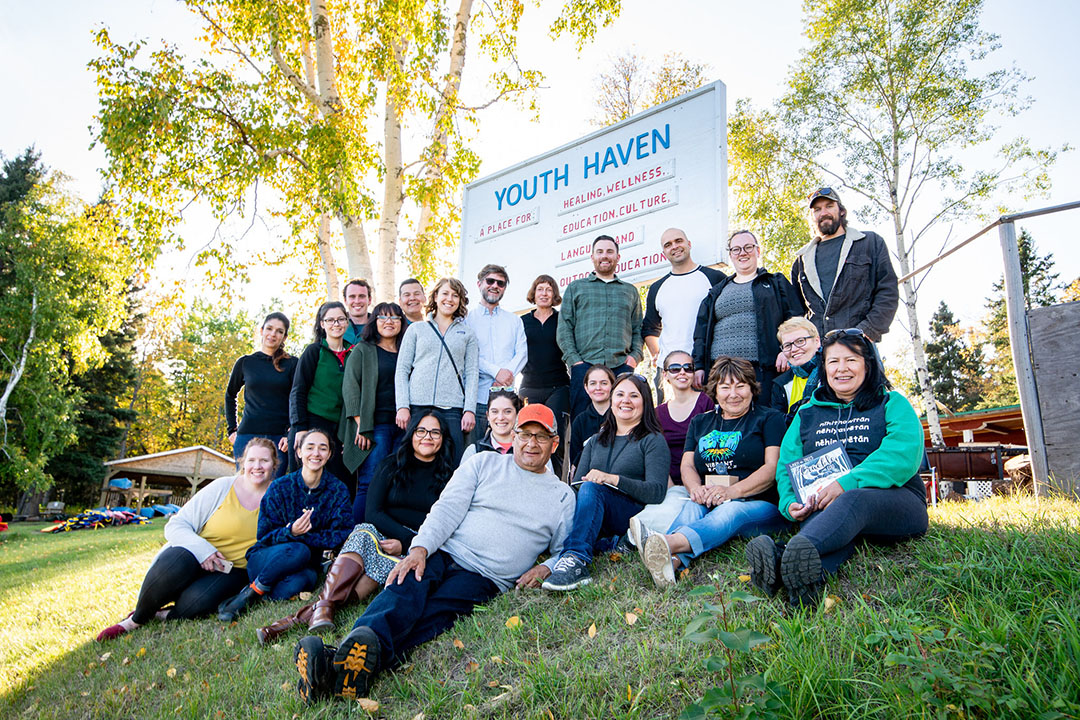
GENI student videos showcase strength and resilience of northern communities
JSGS students in the Master of Governance and Entrepreneurship in Northern and Indigenous Areas (GENI) program are showcased in a series of short videos that highlight the resilience and strength of northern Saskatchewan.
By Erica SchindelIn September 2019, graduate students in Johnson Shoyama’s Master of Governance and Entrepreneurship in Northern and Indigenous Areas (GENI) program travelled to northern Saskatchewan as part of a five-day field school. Throughout their journey, students journaled personal reflections of their experiences in the communities of La Ronge, Pinehouse, and Ile-a-la-Crosse. The personal reflections were recorded into a series of short videos, and these have been shared with the hosting communities as a sign of gratitude, respect and appreciation. With their support, the videos are now being shared widely to show the resilience and strength of northern Saskatchewan.
“These videos are extraordinary,” says Simon Bird, Director of Education for Lac La Ronge Indian Band, and alumnus of the Johnson Shoyama’s Master of Northern Governance and Development program. “You really get to see the strength, resilience and beauty of our people and land. We are excited to share these videos.”
Bird was one of many community representatives that the students met with during the field school. He brought the students, faculty and staff to the Youth Wilderness Camp just outside of La Ronge.
“The field school was a unique and informative experience for many reasons. The communities we visited were welcoming and willing to share their strengths and weaknesses, allowing us to better understand the dynamics at play in northern Saskatchewan,” says Lauren Wallingham, GENI student. “As somebody from a remote Yukon First Nations community, it really opened my eyes to the diversity of Indigenous communities across Canada, and it provided an opportunity for all of us to bring back innovative ideas to our own communities.”
Field schools are a major highlight and requirement of the GENI program. Organized in the first year of study, students travel to both Northern Saskatchewan and Northern Norway to learn directly from communities about the unique opportunities and challenges facing the two regions. GENI students are able to take these lessons with them throughout their studies, and also apply them to their own communities and workplaces.
“We are always so tremendously grateful for the sharing provided by the communities,” reflects the GENI Program Manager Emmy Stavøstrand Neuls. “We wanted to showcase this gratitude, while respecting Indigenous traditions of oral storytelling and touching on the strengths of these communities.”
The videos highlight key themes including the role of language in culture, community-based education, community engagement, and innovation and opportunity in the north. The students were paired with videographer and storyteller, Brandon White, an alumnus from Johnson Shoyama’s Master of Northern Governance and Development program and a resident of the community of La Ronge.
“During the field school, our cohort got to know each other really well, creating a supportive foundation as we move through our classes. It is definitely something we will all remember fondly when we look back on graduate school,” says Wallingham.
--
The Master of Governance and Entrepreneurship in Northern and Indigenous Areas program is delivered and administered in collaboration with the UiT The Arctic University of Norway.
Article re-posted on .
View original article.

